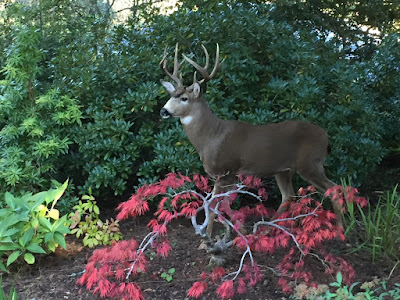White Supremacy and White Privilege
"Not everything that is faced can be changed, but nothing can be changed until it is faced."
~James Baldwin
This country was built upon White supremacy, the notion that Whites are superior to people of color, especially Blacks, and are therefore entitled to dominate them. The White men who founded our nation believed themselves entitled to power and privilege over the Native peoples they found here and the Blacks they brought here as chattel starting in 1619. That is our shameful history as Americans, and the trauma of that legacy permeates our bodies today. No matter what we think now, we cannot wish or explain it away. We have to face it.
The corollary truth we must also face is that we have never been a nation of "liberty and justice for all." But we could become that, if we were to dismantle the systems and structures built upon White supremacy and rebuild in a new way. Once again, we are being called to do so. Perhaps this time really will be different. It is us to those of us who live in White bodies to lead the way. We are the ones whose hearts and minds must be transformed.
As I mentioned in a recent post, one of the first steps is to acknowledge, learn about, and work to eradicate the White privilege that White supremacy and its systemic racism have engendered ("Facing White Privilege, June 6). In that post I offered some resources to help identify what White privilege is. Today I'd like to dig a little deeper, and explore a bit of what White privilege does. Sometimes that involves what White privilege says.
Surely we all know by now that White privilege can sound intentional; it can be hostile, threatening, and frightening. Sometimes it's the aggressive entitlement of making unfounded accusations. Amy Cooper's false report about a birdwatcher in Central Park is only a recent example.
White privilege can also be the sound of generalizing or stereotyping. Whites are now commonly asking, "What do Blacks think about ...?" or "How do Blacks say we can help?" But just as in the White community, not all Blacks think or say the same things.
Well-meaning Whites often dismiss the Black experience with comments like these:
- "I don't even see skin color."
- "I'm color-blind when it comes to race."
- "Race isn't important."
- "All lives matter."
Calling out Blackness as if it were somehow significant is one of the sounds of White privilege. We don't do it with Whites. But we hear things like this all the time:
- "My new neighbors are a Black family from Colorado."
- "This Black guy was walking into the store so I let him have my cart on his way in."
- "Viola Davis is my favorite Black actress."
- "I got lost on the trail but two Black kids came along and showed me how to get back."
Not noticing our privilege is a hallmark of being a privileged White. We have taken on the luxury of tuning out our advantages. We assume that the way we experience the world is the way that everyone else experiences it. Our ignorance leads to comments and questions like these:
- "I had no idea that it's so hard for you to find [certain grooming products; toys that look like your children; books about people who look like you; etc.]."
- "Why don't you want to drive to my neighborhood at night?"
- "You should take your family on a road trip. We drove through the Midwest last summer and it was a lot of fun."
- "Nothing was given to me. I've had to work harder than others for everything I've achieved."
I was even more surprised when the young White officer who came to the window told me that I'd been speeding. "Speeding?" At less than 30 miles an hour? Apparently so, but he let me off with a warning and some advice about where to find a restroom. I'm sure that I just looked like a typical White mom to him, and my Oregon plates backed me up when I told him that I didn't know my way around his town.
When I tell that story to my White friends, they agree that small towns can really shut down at night, and that 28 mph isn't very fast. They can see themselves in my shoes, and the story seems pretty simple. They get why I was puzzled and surprised, rather than frightened.
But my Black family and friends? They hear a different story altogether. The very idea of being pulled over unexpectedly by a young White police officer late at night in an unfamiliar small town is terrifying. The moms in the group can't help but imagine their sons lying in the street when I tell them this story. And now that I have young Black men in my family, the story gives me chills, too.
Like other Whites, I don't have to think about my skin color. But in this country, my Black relatives and friends are never allowed to forget about theirs. And driving is not the same for them as it is for me.
The answer is not for us Whites to shut down, to be defensive, or to give up. And it doesn't help anyone for us to be so paralyzed with guilt or remorse that we can't move. Instead, we can acknowledge the past and change the future starting right now. Sue Borrego's 2016 TEDx talk,
"Understanding My Privilege," is one tool that can help those of us who are White to further understand why we must do so.
In these trying days, we all need to find ways to have hope. Working for change is an act of hope. Let's do it together, using our anger and distress to fuel our efforts.
Love,
Nancie/Mom/Mimi/Grandma



Comments